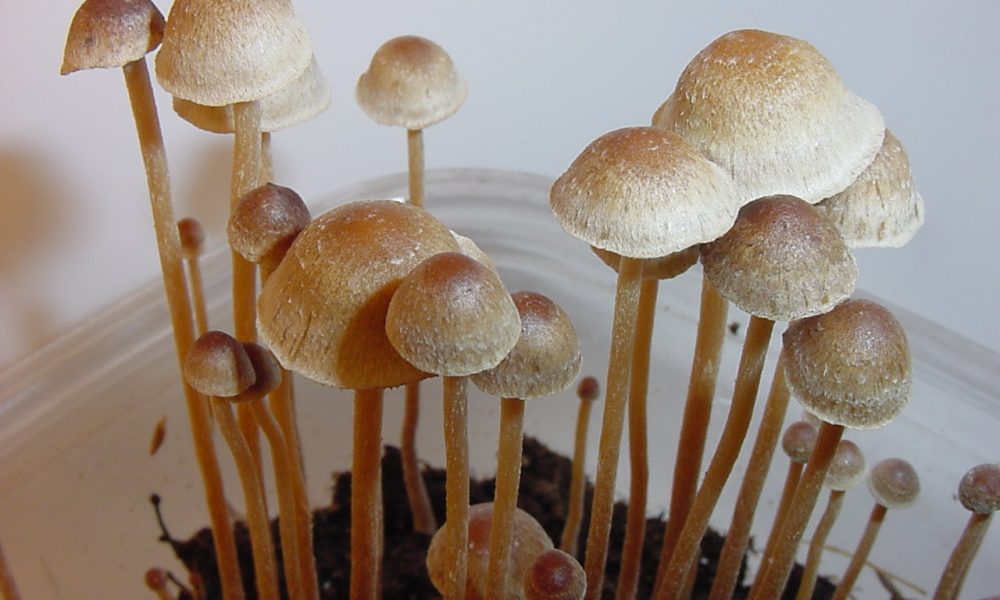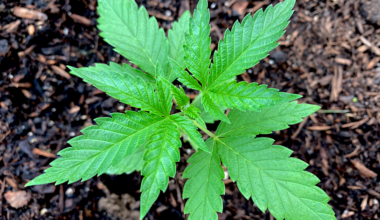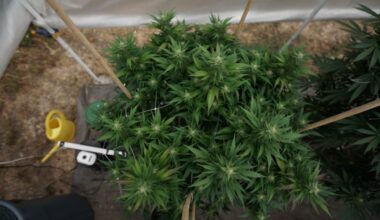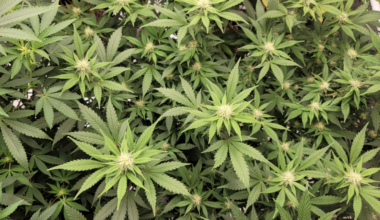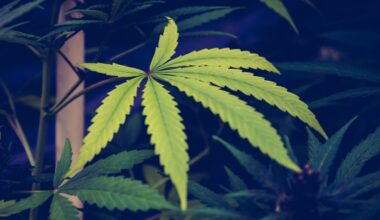A second Hawaii Senate committee has approved a bill to set up a state working group to study the therapeutic benefits of psilocybin mushrooms and develop a “long-term” plan to ensure that the psychedelic is accessible for medical use for adults 21 and older.
It’s one of several psilocybin measures—including one that’s broader in scope by decriminalizing the substance and requiring the establishment of therapeutic psilocybin treatment centers—that have been introduced and could be taken up in the legislature this session.
The Senate Commerce and Consumer Protection Committee advanced the legislation unanimously 7-0 on Tuesday, with one member noting reservations. Prior to the vote, the panel adopted an amendment from the chair to expand the working group’s membership by adding one doctor who specializes in substance misuse and another who works in psychiatry.
This action comes about a week after the Health Committee unanimously approved the measure.
The text of the measure says that “because the State has a shortage of mental health professionals, the State should actively consider novel, innovative, and safe solutions to treat its residents.” It then outlines the proposed composition of the workgroup and what it would be tasked with investigating.
Members would be required to study “the medicinal and therapeutic effects of psilocybin” and develop “a long-term strategic plan to ensure the availability of therapeutic psilocybin or psilocybin-based products that are safe, accessible, and affordable for adults twenty-one years of age or older.”
While the report as drafted would have required the workgroup to submit a report with its findings and recommendations within 20 days of the 2023 legislative session, the Health Committee approved a change last week that pushed back the effective date of the bill to January 1, 2050.
—
Marijuana Moment is already tracking more than 1,000 cannabis, psychedelics and drug policy bills in state legislatures and Congress this year. Patreon supporters pledging at least $25/month get access to our interactive maps, charts and hearing calendar so they don’t miss any developments.![]()
Learn more about our marijuana bill tracker and become a supporter on Patreon to get access.
—
Adding a “defective date” is a common legislative practice in the Hawaii legislature to leave open opportunities to further consider and revise a given bill as it moves through the process, which could include resolving differences legislation between chambers in conference.
The working group would also examine “federal, state, and local laws, regulations, administrative rules, and procedures regarding the therapeutic use of psilocybin,” scientific research into the psychedelic and “requirements, specifications, and guidelines for a medical professional to prescribe and provide psilocybin to patients in jurisdictions in which psilocybin is used to treat mental health conditions.”
In testimony for the last panel this bill moved through, the Department of Health expressed some reservations about the scope of the proposal.
The House companion version of the psychedelics legislation has yet to be scheduled for a hearing.
The full Senate did approve measures with similar language and directives last year, but they were in the form of non-binding resolutions.
What also remains to be seen is whether Hawaii lawmakers will have the appetite to advance a broader psilocybin bill that was filed for this session but has also yet to be scheduled for committee hearings.
The measure, which is virtually identical to a bill that was carried over from the 2021 session, would remove psilocybin and psilocyn from the list of controlled substances and require the Department of Health to “establish designated treatment centers for the therapeutic administration of” the psychedelics. It would further create a review panel to study and submit reports on the impacts of the reform to the legislature.
The bill text is the same as the legislation that was carried over in 2021, except that the deadlines that the panel faced to submit their annual reports begins one year later in the new version.
Also last year, the state legislature adopted a resolution that asks the state to seek an exemption from the Drug Enforcement Administration (DEA) stipulating that it is permitted to run its medical cannabis program without federal interference.
Hawaii is just one of numerous states where lawmakers are taking the lead on psychedelics reform this year.
For example, a Utah Senate committee on Tuesday approved a House-passed bill to create a task force to study and make recommendations on the therapeutic potential of psychedelic drugs and possible regulations for their lawful use.
An Oregon Senate committee also recently advanced a bill to ensure that equity is built into the state’s historic therapeutic psilocybin program that’s actively being implemented following voter approval in 2020.
Oklahoma lawmakers approved a bill in committee last week to decriminalize low-level possession of psilocybin and promote research into the therapeutic potential of the psychedelic.
A group of Maryland senators recently filed a bill that would create a state fund that could be used to provide free access to psychedelics like psilocybin, MDMA and ketamine for military veterans suffering from post-traumatic stress disorder (PTSD), while also supporting research into their therapeutic potential.
A Republican Missouri lawmaker introduced a bill last month to give residents with serious illnesses legal access to a range of psychedelic drugs like psilocybin, ibogaine and LSD through an expanded version of the state’s existing right-to-try law.
A bill to decriminalize a wide array of psychedelics in Virginia was taken up by a House of Delegates panel last month, only to be pushed off until 2023. A separate Senate proposal to decriminalize psilocybin alone was later defeated in a key committee.
California Sen. Scott Wiener (D) told Marijuana Moment in a recent interview that his bill to legalize psychedelics possession stands a 50/50 chance of reaching the governor’s desk this year. It already cleared the full Senate and two Assembly committees during the first half of the two-year session.
Washington State lawmakers also introduced legislation last month that would legalize what the bill calls “supported psilocybin experiences” by adults 21 and older.
New Hampshire lawmakers filed measures to decriminalize psilocybin and all drugs.
Last year, the governor of Connecticut signed legislation that includes language requiring the state to carry out a study into the therapeutic potential of psilocybin mushrooms.
Similar legislation was also enacted by the Texas legislature, requiring the state to study the medical risks and benefits of psilocybin, MDMA and ketamine for military veterans in partnership with Baylor College of Medicine and a military-focused medical center.
Activists in Colorado recently filed revised versions of 2022 ballot initiatives to similarly legalize psilocybin and establish “healing centers” in the state. A competing campaign filed a different psychedelics legalization last month.
Michigan activists filed a statewide ballot initiative this month that would legalize possessing, cultivating and sharing psychedelics and set up a system for their therapeutic and spiritual use.
A pair of Michigan senators also introduced a bill in September to legalize the possession, cultivation and delivery of an array of plant- and fungi-derived psychedelics like psilocybin and mescaline.
At the congressional level, bipartisan lawmakers sent a letter to the Drug Enforcement Administration (DEA) last month, urging that the agency allow terminally ill patients to use psilocybin as an investigational treatment without the fear of federal prosecution.
Meanwhile, back in Hawaii, a Senate committee approved a bill last week to make it so people 65 and older can automatically qualify for medical marijuana, regardless of whether they have a diagnosed condition that would otherwise make them eligible.
Utah Senate Committee Approves Psychedelics Study Task Force Bill That Already Passed House
Photo courtesy of Wikimedia/Workman.
Medical Disclaimer:
The information provided in these blog posts is intended for general informational and educational purposes only. It is not a substitute for professional medical advice, diagnosis, or treatment. Always seek the advice of your physician or other qualified healthcare provider with any questions you may have regarding a medical condition. The use of any information provided in these blog posts is solely at your own risk. The authors and the website do not recommend or endorse any specific products, treatments, or procedures mentioned. Reliance on any information in these blog posts is solely at your own discretion.
